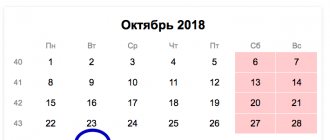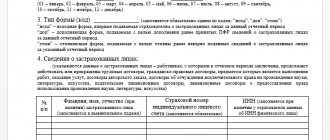It may be surprising to many that taxes, as such, have a limitation period. Most payers are limited by moral principles in the issue of paying fees to the budget, but it is not superfluous to mention that by law there are certain deadlines for demanding payment of tax obligations through the courts. After these deadlines, even the court cannot demand any monetary compensation.
In this article we will consider issues related to this side of the matter. Are there deadlines for filing claims for overdue tax payments? Is it legal to write off bad debts? When should this be done?
What is it about
In tax law, there is a distinction between the statute of limitations for bringing to liability and the statute of limitations for paying taxes, the main differences are given in the table:
| Who makes the decision | Federal Tax Service of the Russian Federation (FTS of Russia) | Judicial bodies of the Russian Federation |
| Sources of law | Art. 113, paragraph 4 of Art. 397, art. 70 Tax Code of the Russian Federation | 45 – 48 Tax Code of the Russian Federation |
| Meaning | Extrajudicial collection procedure | Collection based on a court decision (order) |
| Duration | 3 years (or 3 tax periods) | 6 months, 2 years - for individual cases |
The Russian Tax Service uses a number of effective tools to collect unpaid taxes and arrears out of court. If officials of the Federal Tax Service apply to the judicial authorities, the statute of limitations has legal significance.
Types of statute of limitations for paying taxes
Payment of accrued taxes and fees is the direct responsibility of the taxpayer . The Tax Code of the Russian Federation clearly regulates the procedure for determining the amount of tax and the timing of its payment.
By missing these deadlines, failing to pay the tax or paying it in full, the taxpayer commits a tax offense . Accordingly, the tax authorities have every right to recover this amount within the framework of current legislation. However, there are certain time limits.
The civil law establishes a statute of limitations - this is the period (maximum 3 years) during which a violation of the right can be challenged in a claim. However, civil legislation regarding the limitation period does not apply to tax relations - the Tax Code is more important here.
The Tax Code of the Russian Federation establishes 2 types of limitation periods for taxpayers:
- the statute of limitations for bringing to justice for committing a tax offense means that if the offense occurred more than 3 years ago, then it is no longer possible to be held accountable for it;
- statute of limitations - means that the tax office can sue to collect the debt within 6 months or 2 years (subject to certain conditions, which will be discussed later) after notifying the debtor.
Therefore, it is important to understand the difference between the statute of limitations and the statute of limitations for liability.
These 2 periods are counted independently of each other. For example, if the trial lasts more than 3 years, the case will be closed - the court simply will not be able to make a decision on collection. At the same time, the obligation to pay tax does not disappear even after 3 years - the debt continues to be registered with the taxpayer, but it will not be possible to collect it.
The debt can be completely written off, for example, if the court decides that it is impossible to collect it. Then the debt is considered uncollectible, after which it is written off in accordance with the Tax Code.
It is worth noting that the period of 3 years applies not only to debts on taxes, fines and penalties. This period applies to liability for various tax offenses, including:
- violations of registration rules;
- failure to report;
- filing a declaration in a manner inconsistent with the law;
- violations of tax accounting rules, etc.
The statute of limitations of 6 months or 2 years relates directly to the collection of tax arrears.
Deadline for bringing a director to administrative responsibility
The statute of limitations for bringing to administrative responsibility, during which a person can be brought to justice, and after which proceedings on an administrative offense cannot be started, and what has been started must be terminated, is established by Article 4.5 of the Code of Administrative Offences.
As a general rule, the statute of limitations for bringing to administrative liability cannot exceed two months, and when a case is considered by a judge - three months. For a number of administrative offenses, the statute of limitations for bringing administrative liability is one year, two years or six years.
Statute of limitations for bringing to administrative liability
| Statute of limitations | Type of administrative offense |
| 1 year from the date of commission of the administrative offense | for violation of laws on export control, on the media, on copyright, advertising, on anti-money laundering, on taxes and fees, on consumer protection, on joint stock companies, on limited liability companies, also for violation of labor laws, etc. |
| 2 years from the date of commission of the administrative offense | for violation of customs legislation, currency legislation, and accounting legislation. |
| 3 years from the date of commission of the administrative offense | for violation of insolvency (bankruptcy) legislation. |
The concept of tax limitation
The tax limitation period refers to the period during which the Federal Tax Service can compulsorily collect the resulting debt.
It follows that tax authorities can collect debt from debtors only if the application to the court occurred before the expiration of the time intervals provided by law. However, there is one caveat here. The tax statute of limitations is set to bring violators to justice. The main provisions on this issue are disclosed in Art. 113 of the Tax Code of the Russian Federation. This means that punitive sanctions provided for by the provisions of the Code of Administrative Offenses or the Criminal Code cannot be applied to a person/organization that has violated the procedure for paying taxes. At the same time, the obligation to repay the resulting debt does not disappear anywhere.
If we refer to clause 1 of Art. 113 of the Tax Code of the Russian Federation, it can be understood that the tax limitation period is defined as 3 years from the date of commission of a tax crime or from the next day after the end of the billing period. The second point concerns offenses falling under Articles 120, 122, 129.3 and 129.5 of the Tax Code.
Important! The calculation period is understood as a calendar year or another time interval relevant for certain types of taxes. It follows that for different types of tax offenses, the statute of limitations will be calculated differently. In addition, the procedure for compulsory collection and the period for carrying out this procedure directly depends on the status of the offender: an individual or a legal entity.
Suspension of the limitation period for prosecution
Part 1.1. Art. 113 of the Tax Code establish conditions for suspending the limitation period. They are exceptional in nature and are associated with the actions of the taxpayer causing obstacles. The opportunity to suspend the period occurs under the following conditions:
- An on-site audit is carried out against the taxpayer. It involves the adoption of an appropriate decision by the head of the inspection or his deputy. The text must indicate the employees responsible for this control activity;
- the actions of the subject being checked must be active. This does not apply to every obstruction. Ignoring the requirements for the production of documents clearly does not correspond to this characteristic;
- the taxpayer's actions must create insurmountable obstacles making it impossible to determine possible arrears. It is impossible to take the necessary actions.
The specified circumstances must have all these signs at the same time.
An example is opposition to inspectors’ access to the taxpayer’s territory. If the inspectors have properly executed documents, but the person being inspected does not let them in, then an act is drawn up recording this.
The moment the suspension begins is the creation of obstacles. After this, the period ceases to be calculated, making it possible to hold the taxpayer accountable if a violation occurs. This regime lasts until the obstacles for officials carrying out the control activities are eliminated.
The moment of their removal is confirmed by the decision of the inspectorate to resume the on-site inspection. From this date the period continues to be calculated.
Author of the article
Types of statutes of limitations
The current legislation of the Russian Federation, residents of the country are not only required to pay taxes, but also must make deductions strictly within the time limits established by law.
If this does not happen, a tax offense is formed. This gives the Federal Tax Service the right to collect debts forcibly, through the courts, and to bring those responsible to justice within the framework of current legislation. However, the statute of limitations for such actions varies. It looks like this:
- Statute of limitations - collection of debt for unpaid taxes through the court. Such claims are filed within a period of 6 months to 2 years from the moment the debtor is notified of the identified violation.
- Prosecution is the imposition of punishment for tax crimes. The maximum period for prosecution is limited to 3 years. After this period of time, the offender is no longer subject to punishment.
Both statutes of limitations operate independently of each other. For example, if the trial lasts more than 2 years, the court cannot make a decision regarding the forced collection of debts. But it will be able to hold the debtor accountable for the offense committed. Despite the fact that it will not be possible to collect the debt based on a court decision, the tax debt continues to be registered with the violator. It can only be written off if the debt is deemed uncollectible.
Important! The general obligation to pay taxes has no limitations on limitation periods!
Limitation periods for an individual
Much depends on the amount of debt and the type of tax. In particular, if we are talking about filing a claim for non-payment of taxes to an individual, this can be done within six months from the date of expiration of the deadline for making such payments. If, within 3 years from the date of formation of a tax debt, the amount of unpaid taxes exceeds 3,000 rubles, the Federal Tax Service has the right to send a claim to the court for forced collection of the debt. This is done within a six-month period from the moment such a right arises.
However, there are a number of nuances here. For example:
- Land and property taxes can only be collected for the last 3 years. In particular, if the Federal Tax Service goes to court with a demand to repay the existing debt, taxes are collected only for the period 2016-2018.
- Motor vehicle tax is also collected only for the last three years. However, there is an exception for vehicles used for seasonal work, for example, snow removal equipment. In such situations, partial tax exemption is allowed.
On a note! The law allows for the possibility of reinstating the expired statute of limitations. Therefore, in some cases, the court may collect tax debt, even if the proceedings on this issue take more than 3 years.
How to monitor which violations increase the liability of the director and accountant
A large electronic encyclopedic publication is being published on the topic of responsibility of directors and accountants - the berator “Responsibility of Directors and Accountants”
. In addition to the types and types of liability described in detail, it describes the procedure for initiating criminal cases, judicial procedures, as well as the rights and powers of all inspection structures, according to whose decisions directors and accountants are held accountable.
The owners of the berator can at any time clarify the correct information in the berator “Responsibility of the director and accountant”. And they learn about innovations from weekly newsletters, which, by the way, are not limited to liability, but tell about all the intricacies of accounting, taxation of organizations, including personnel issues.
Video on our YouTube channel
Anyone can face a situation where you have to defend yourself against accusations from the tax office and the prosecutor's office. The director's responsibility for the company's activities has been taken to the point of absurdity. And now the accountant can be held accountable.
Collection process
The collection period for organizations and the collection period for taxes from individuals differ at different stages of the process:
| Individual | Entity | |
| Voluntary payment | Makes payments based on tax notices. Includes no more than three tax periods preceding the calendar year of its direction. | The amounts payable are calculated independently, in the manner and in accordance with the periods established by the Tax Code of the Russian Federation. |
| If a debt is detected | Pays based on the submitted request. It is issued no later than 3 months from the date the debt was discovered (1 year for amounts of 500 rubles or less). | Pays based on requirement. |
| If the debt is not repaid within the period specified in the request | Payment is collected based on a court order or court decision. | Payment is collected in an indisputable manner based on the decision of the tax service on collection. Subject to a period of 2 months from the date provided for payment in the advance request. |
The procedure and deadline for collecting taxes from individuals differs from the process in relation to legal entities. The main difference is that penalties are applied to organizations unconditionally.
An undisputed collection is a collection order to write off funds from the company’s account to the bank in which the taxpayer-organization’s accounts are opened.
The Federal Tax Service will be able to forcibly collect funds from an individual only after a trial.
How is the statute of limitations calculated?
In order to correctly calculate the statute of limitations for non-payment of taxes, it is necessary to determine the exact date when the obligation to pay arose:
- The moment the debt is discovered is the day following the payment date, or the date following the end of the tax period.
- The demand for payment must be fulfilled within 8 days from the date of its receipt, unless another date is specified in the request itself.
- If the declaration is filed late, then the moment of discovery is the next day after filing the declaration.
- If the debt is discovered as a result of a tax audit, then the request for repayment is sent within 20 working days after the Federal Tax Service’s decision based on the audit results comes into force.
What deadlines are provided by law?
The limitation period for tax offenses has its own characteristics and differs significantly depending on the subject of the offense.
Principles of calculation
The procedure for collecting tax debt directly depends on the status of the taxpayer.
For example, from individual entrepreneurs and organizations, the Federal Tax Service can collect debts indisputably, without going to court. The legislator believes that having received a notification from the Federal Tax Service about the resulting debt, businessmen are obliged to immediately pay the debt. If payment on demand does not occur, the tax service contacts the financial institution engaged in servicing the accounts of the debtor company. If the accounts have the necessary amount to repay the debt, the bank by default transfers it according to the details of the Federal Tax Service. As mentioned above, a pre-trial resolution of this issue is possible within 2 months from the moment the arrears are identified. If the deadline is missed or the company’s accounts do not have enough funds to pay off the existing debt, the Federal Tax Service goes to court and files a claim for forced collection. Pre-trial conflict resolution in such situations becomes impossible.
In the case of individuals, the procedure for calculating the limitation period and the principles of debt collection are different. In particular, it is possible to collect tax debts from an individual only in court. Such arrears are detected automatically. This happens the very next day after the established payment period expires. After this, the Federal Tax Service issues a repayment demand to the debtor. If the amount of debt does not reach the financial limit of 500 rubles, the claim is submitted within a year. In other cases, this period is 3 months. The request shall indicate the type of tax for which the arrears have arisen, the total amount to be paid and the maximum repayment period. If specific deadlines are not specified, the debt must be repaid within 8 days.
If the amount of unpaid taxes exceeds 3,000 rubles, the tax office may forcibly recover the funds within a 6-month period. If collection is made at the expense of the debtor’s property, this period increases to 2 years. In situations where the total amount of debt does not exceed 3,000 rubles, collection is carried out within six months after the expiration of the 3-year tax limitation period.
Statute of limitations for unpaid taxes of individual entrepreneurs
An individual entrepreneur in the course of his activities is obliged to pay all necessary taxes within the time limits established by law. However, in practice, situations often arise when, during audits, tax authorities discover tax arrears. In this case, the first thing the Federal Tax Service does is send an official notice to the debtor demanding payment of the tax and penalties accrued on it. In addition to the amount of debt, this notice will specify the exact deadlines within which the individual entrepreneur is obliged to pay the tax.
If the debtor has not paid the required amount within this period, the tax authorities have the right to file a claim in court or collect the debt themselves by sending documents to the bank where the individual entrepreneur has a current account.
Not only tax authorities, but also individual entrepreneurs can go to court
The obligation of taxpayers to pay taxes, according to the Tax Code of the Russian Federation, is unlimited. But to collect the amount of debt, a strictly defined amount of time is allotted - 3 years, from the moment the tax violation was committed. This is necessary because the more time passes from the moment of such an offense, the more difficult it is to prove guilt. After three years, the taxpayer cannot be charged with a tax offense. But it is important to understand from what point in time these 3 years begin to count.
If the tax authorities have identified arrears in tax payments for the second quarter of 2021, then the three-year period begins to count not from 07/01/2017, but from 01/01/2018.
Overpayment of taxes may also be grounds for going to court
Limitation periods for overpaid taxes
Not only tax authorities file claims, individual entrepreneurs can do the same. They are allowed to make a claim to offset or refund the overpaid tax. The period for applying to the judicial authorities is the same - 3 years.
If the Federal Tax Service detects an overpayment, then it is obliged to notify the individual entrepreneur about this within 10 days from the date of detection of the overpayment. An individual entrepreneur, in turn, must write an application to offset the overpayment against future tax payments or to return this amount to the current account.
Do not miss the statute of limitations, otherwise it will be problematic to recover the overpaid tax
In what cases can the statute of limitations be extended?
So, after a debt arises within 3 months, the tax office can make a demand; if it is not paid, then after another 2 months it can sue.
But it happens that the Federal Tax Service does not sue the debtor within the prescribed period. There may be several reasons, the main one being the heavy workload of tax authorities, who cannot always find time to collect a debt of several thousand rubles.
In this case, having waited all the limitation periods (that is, 6 months from the date specified in the demand), the debtor thinks that he has been freed from his debt. However, the statute of limitations may be restored by the court.
The main condition for the court to make such a decision is that the limitation period was missed for a good reason. In each specific case, the reasons for reinstating the deadline are considered individually.
At the same time, the Plenum of the Supreme Arbitration Court indicates what reasons the court will not be able to accept to restore the statute of limitations:
- delays due to coordination with management on filing a lawsuit;
- business trip or vacation of the responsible employee of the Federal Tax Service;
- change of management or other personnel changes in the tax office;
- other internal organizational reasons.
Therefore, if the Federal Tax Service Inspectorate files a claim in court after the deadline, the court will look at how valid the reason for the delay was.
The statute of limitations for holding people accountable for tax offenses cannot be extended or restored. Therefore, if more than 3 years have passed, then in any case the tax authority will not be able to make a decision on collection, or this decision will be easy to appeal in court.
For legal entities and individual entrepreneurs
The process of collecting arrears from legal entities and individual entrepreneurs is regulated by Art. 46, 47 Tax Code of the Russian Federation. If the inspection has collected an excess amount of fees, fines or penalties from an enterprise (entrepreneur), the taxpayer can apply for a refund of the overpayment. This can be done within 30 days from the date when:
- he was notified of an overpayment of tax;
- The court's decision that the inspection collected a larger amount than necessary came into force.
If the specified period has already expired, you can contact the judicial authority. In this case, the period of time for taxes of legal entities and entrepreneurs will be 3 years from the moment when they were notified of the overpayment of the tax amount, or when the debtor learned about it. A taxpayer who has overpaid tax can skip the stage of contacting the inspectorate and immediately write an application to the court.
When collecting tax debts from individual entrepreneurs and enterprises through the court, the statute of limitations is:
- when paying a debt using funds in current accounts - 6 months;
- when foreclosure is applied to other property of the taxpayer - two years.
The application of such a concept as the statute of limitations for taxes for legal entities is the same as in relation to individuals.
Note!
It is worth noting that during the audit, enterprises consider documents only for the last 3 years. An exception is the situation if there were previously obstacles to the implementation of control actions of the inspectorate.
If the income of an individual is received in the course of business activities, the same provisions apply that regulate the activities of a legal entity. On the other hand, they are subject to the same rules that apply to individuals. There are no special standards that are suitable only for individual entrepreneurs.
The debt of an individual entrepreneur is written off only in the following situations:
- death;
- recognition as financially insolvent.
Expired tax statute of limitations
A taxpayer cannot be held accountable if more than 3 years have passed since the tax violation was committed. Exceptions include situations where a person actively interfered with an audit by tax officials.
Note!
The Federal Tax Service can go to court if the amount of a private person’s tax debt (fines, fees, fines) exceeds 3 thousand rubles, within six months from the moment when the period for fulfilling the corresponding requirement of the Tax Code of the Russian Federation has expired.
If the debt does not exceed 3 thousand rubles, the supervisory authority can apply to the judicial authority within six months after the expiration of the 3-year period. In this case, the judge has the right to renew missed statutes of limitations.
What deadlines are provided by law?
The limitation period for tax offenses has its own characteristics and differs significantly depending on the subject of the offense.
For subjects - individuals
To collect a debt exceeding 3,000 rubles, the Federal Tax Service must file a claim within 6 months after the date specified in the request. If the date was not specified in the request, payment of the debt is made no later than 8 working days from the date of receipt of the request (clause 4 of Article 69 of the Tax Code of the Russian Federation).
If the amount of debt is insignificant and amounts to less than 3,000 rubles, is there a statute of limitations for taxes in such cases? Yes, for such small amounts the following rule applies: if within 3 years (from the date specified in the request) the amount of the debt does not exceed 3,000 rubles, then the statute of limitations is 6 months from the expiration of this three-year period (clause 2 Article 48 of the Tax Code of the Russian Federation).
IMPORTANT!
04/01/2020 in para. 1 clause 3 art. 46 of the Tax Code of the Russian Federation, amendments are being made (Federal Law No. 325-FZ dated September 29, 2019), in accordance with them, if within 3 years from the date of expiration of the earliest demand for payment such amount of tax exceeded 3,000 rubles, the decision on collection is made within 2 months from the date of excess. If the amount does not exceed 3,000 rubles, the decision on collection is made within 2 months from the date of expiration of 3 years.
For legal entities and individual entrepreneurs
When collecting tax debts from legal entities and individual entrepreneurs in court, the claim period is:
- 6 months - from funds in the company’s bank accounts.
- 2 years - in case of insufficient funds in the accounts and foreclosure on the debtor’s property, while the statute of limitations for taxes of legal entities may be restored by the court if there are good reasons.
Responsibility measures
The first thing debtors should remember is the accrual of penalties.
The fine is accrued from the next day the tax debt appears, and is 1/300 of the Central Bank refinancing rate. For organizations, this rate is valid only for the first month. Then the rate changes to 1/150, and remains at this level until the debt is repaid. In addition, the legislator provides a system of monetary fines in the amount of:
- 20% of the amount of unpaid taxes, if the offense does not involve malicious intent;
- 40% if the debtor deliberately evades taxes.
In some cases, the perpetrators may be held criminally liable under Art. 199 of the Criminal Code of the Russian Federation. Based on this document, those found guilty face a fine of up to 300,000 rubles or imprisonment for up to 2 years. If the crime is committed on an especially large scale or by prior conspiracy by a group of persons, the penalties are toughened. In particular, the fine increases to 500,000 rubles, imprisonment - up to 6 years.
Important! The basis for bringing individuals to criminal liability for non-payment of taxes is considered to be debt in excess of 900,000 rubles. For legal entities and organizations, the liability threshold is 5,000,000 rubles.






